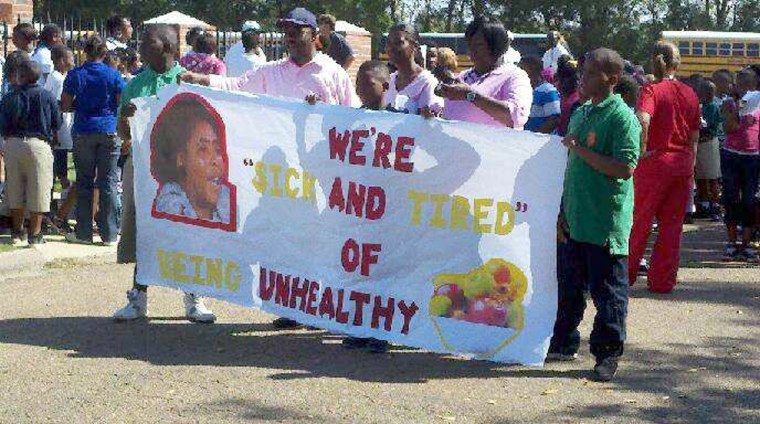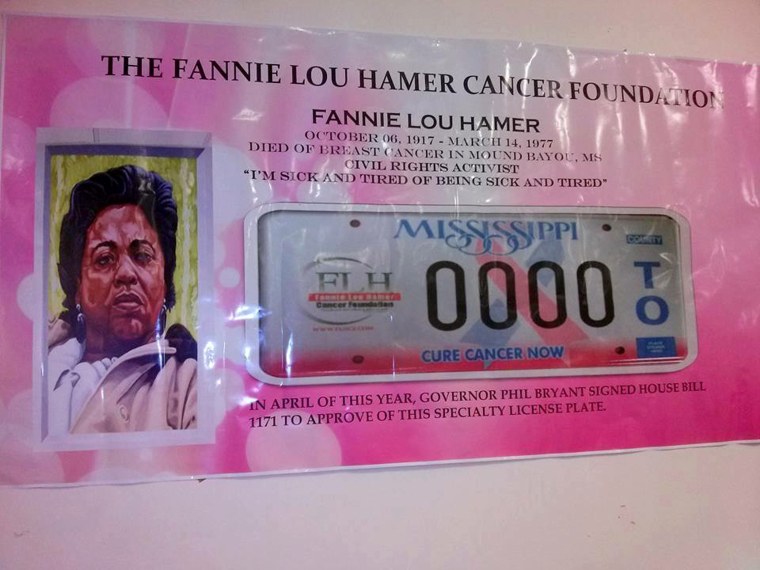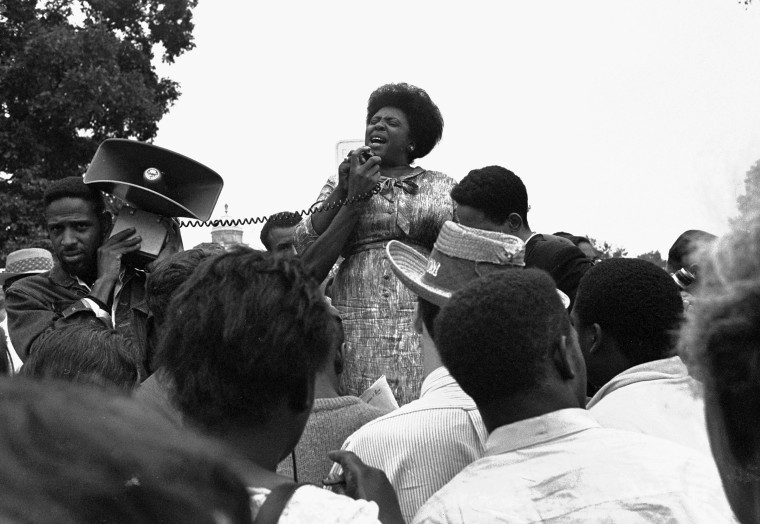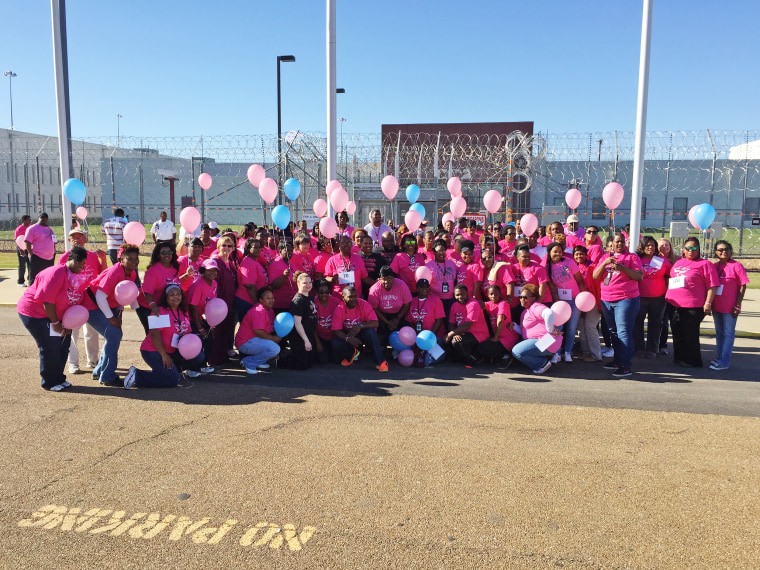“I am sick and tired of being sick and tired, and we want a change…”
When civil rights activist Fannie Lou Hamer spoke these historic words at the Williams Institutional C.M.E. Church in Harlem in 1964, she was talking about racial inequality among people of color.
Today, the quote is shared frequently online, and for women with breast cancer, it is not only a call to action, but a cry for help. Hamer, who would have turned 100 on Oct. 6, 2017, died from breast cancer at age 59 — a tragedy thousands of women of color face today.
A new report by the American Cancer Society shows the number of breast cancer deaths dropped 39 percent between 1989 and 2015, saving 322,600 lives in 26 years. While it's a positive sign attributed to advanced treatment and early detection, the report also shows a racial health disparity between black and white women.

Between 2006 and 2015, overall breast cancer death rates decreased among black, white, Latinos, Asian/Pacific Islanders, and American Indians/Alaska Natives. In 2011, the breast cancer death rate among black women was 44 percent higher than white women, but dropped to 39 percent in 2015.
The median age of black women who die from breast cancer is 62 years old (for white women, the median age is 70 years). It is also the second leading cause of cancer death in black women.
Delayed diagnosis, social and economic status, and progression of the disease are some of the reasons for this high number, according to Dr. Vikisha Fripp, plastic and breast reconstructive surgeon at Providence Hospital in Washington, D.C.
Related:Black Women More Likely to Get Wrong Breast Cancer Care, Study Confirms
If the cancer is found late and is too far along, some of the current treatments don’t work, which Fripp said is another reason for high death rates. And because some women live in low-income areas, they can’t afford to take off from work to get treatment.
Triple-negative breast cancer, breast cancer cells without estrogen, progesterone, or HER-2 receptors, are also more common among black women than white women and are harder to treat. For example, if black women have estrogen-receptor negative cancer, they are less likely to benefit from treatment with drugs like tamoxifen that target estrogen.
Although there’s research being done on how to better treat more aggressive forms of breast cancer, Fripp said more work needs to be done outside of the lab to decrease the number of black women dying.
“We have to get to the key which is education and awareness,” Fripp said. “We need someone to be a liaison between the community, whose job is to go out and speak to women.”
Breast cancer related deaths are also higher among black women than white women in Southern states such as Alabama, North Carolina, and Louisiana. In Mississippi, where Hamer was born and where she died on March 14, 1977, that rate is also high. According to the Mississippi State Department of Health, nearly 410 women die a year from breast cancer in the state.

The Fannie Lou Hamer Cancer Foundation is working to reduce cancer health disparities in Ruleville, Mississippi and across the state. Founded in 2004 by Freddie White-Johnson, the foundation raises awareness of the disease through outreach programs to educate under-served communities about cancer.
White-Johnson said the number of women affected by breast cancer is discouraging.
“This year alone, we’ve seen 786 women enroll into the breast cancer outreach program that we do. Last month, we saw 76 women who had enrolled, and I was hurt because seven women had breast cancer, and that’s high,” White-Johnson said. “Last month we identified over 100 women in the program and we had six women diagnosed with breast cancer.”

The best way to honor and honor Hamers’ legacy, Johnson said, is for women to get screened.
“She died for social justice and from breast cancer. Back then we were fighting injustice, right now we’re fighting health disparities and people dying from cancer,” White-Johnson said. “We have to screen and give back.”
Related:Hello From the Other Side of Breast Cancer: 8 Tips From Survivors
Fripp added that women also have to be responsible for themselves and look out for others in an effort to prevent deaths from the cancer. “We have to do the work until the research catches up. The things that happened to Fannie Lou Hamer should not happen now, it just should not."
